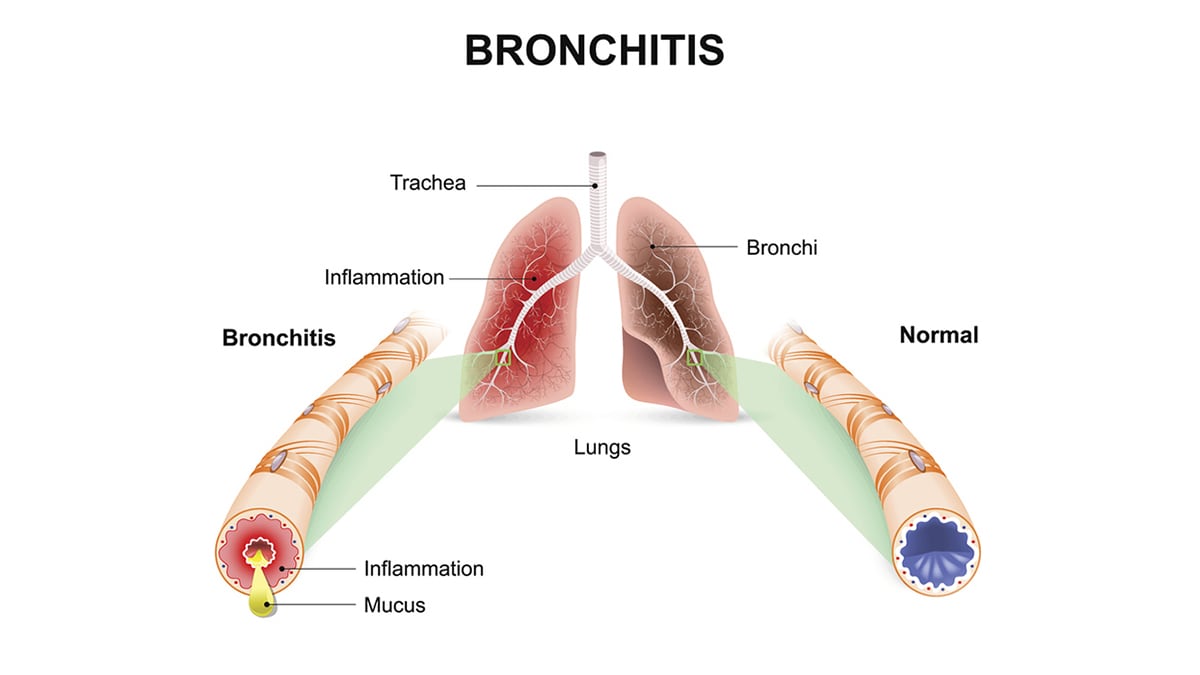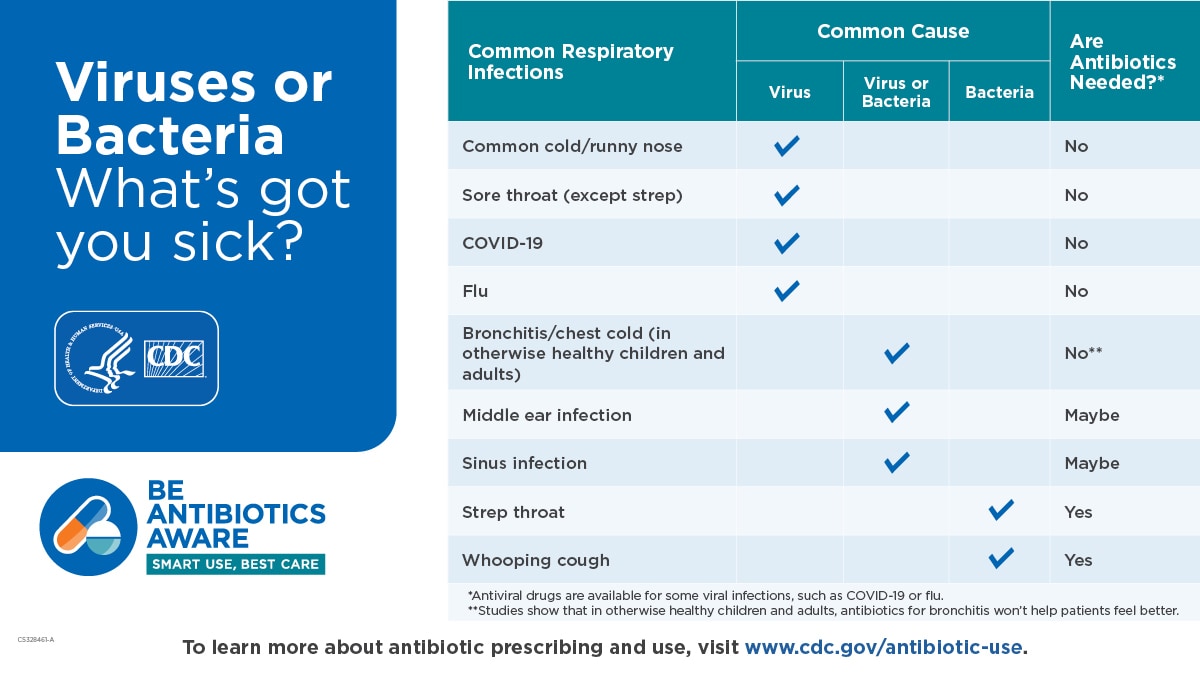Key points
- Cough keeping you up at night? Soreness in your chest and feeling tired? You could have a chest cold, often called acute bronchitis.
- A virus usually causes chest colds.
- Antibiotics will not help you get better if you have a chest cold.
- If you're healthy without heart or lung problems or a weakened immune system, this information is for you.
Overview
- A chest cold, often called acute bronchitis, occurs when the airways of the lungs swell and produce mucus in the lungs. That's what makes you cough.

Signs and symptoms
The most common symptom of acute bronchitis is coughing with or without mucus. Symptoms of acute bronchitis last less than 3 weeks. Other symptoms can include:
- Soreness in the chest
- Feeling tired (fatigue)
- Mild headache
- Mild body aches
- Sore throat
Prevention
You can help prevent acute bronchitis by doing your best to stay healthy and keep others healthy, including:
- Clean your hands.
- Get recommended vaccines, such as the flu vaccine.
- Don't smoke and avoid secondhand smoke.
- Cover your mouth and nose when coughing or sneezing.
When to seek medical care
- Temperature of 100.4 °F or higher.
- Cough with bloody mucus.
- Shortness of breath or trouble breathing.
- Symptoms that last more than 3 weeks.
- Repeated episodes of bronchitis.
This list is not all-inclusive. Please see a healthcare provider for any symptom that is severe or concerning.
Talk to a healthcare provider right away
Treatment
Acute bronchitis usually gets better on its own—without antibiotics. When antibiotics aren't needed, they won't help you, and their side effects could still cause harm. Side effects can range from mild reactions, like a rash, to more serious health problems. These problems can include severe allergic reactions, antimicrobial-resistant infections and C. diff infection. C. diff causes diarrhea that can lead to severe colon damage and death.
How to feel better
- Get plenty of rest.
- Drink plenty of fluids.
- Use a clean humidifier or cool mist vaporizer.
- Use saline nasal spray or drops to relieve a stuffy nose.
- For young children, use a rubber suction bulb to clear mucus.
- Breathe in steam from a bowl of hot water or shower.
- Use throat lozenges or cough drops. Do not give lozenges to children younger than 4 years of age.
- Use honey to relieve cough for adults and children at least 1 year of age or older.
Ask your healthcare provider about over-the-counter medicines that can help you feel better. Always use over-the-counter medicines as directed. Remember, over-the-counter medicines may provide temporary relief of symptoms, but they will not cure your illness.
Over-the-counter medicine and children
Carefully read and follow instructions on over-the-counter medicine product labels before giving medicines to children. Some over-the-counter medicines are not recommended for children of certain ages.
- Pain relievers:
- Children younger than 6 months: only give acetaminophen.
- Children 6 months or older: it is OK to give acetaminophen or ibuprofen.
- Never give aspirin to children because it can cause Reye's syndrome. Reye's syndrome is a very serious, but rare illness that can harm the liver and brain.
- Cough and cold medicines:
- Children younger than 4 years old: do not use over-the-counter cough and cold medicines in young children unless a healthcare provider specifically tells you to. Cough and cold medicines can result in serious and sometimes life-threatening side effects in young children.
- Children 4 years or older: discuss with your child's healthcare provider if over-the-counter cough and cold medicines are safe to give to your child.
Ask your healthcare provider about the right dosage of over-the-counter medicines for your child's age and size. Also, tell your child's healthcare provider about all prescription and over-the-counter medicines they are taking.
Similar diseases
Other illnesses like whooping cough (pertussis) or pneumonia can have similar symptoms to acute bronchitis. If you have whooping cough or pneumonia, your healthcare provider will most likely prescribe antibiotics.
Resources

For more on treatment of common illnesses, visit CDC resources:
- Ear Infection
- Sinus Infection
- Sore Throat
- Urinary Tract Infection
- Common Cold Fact Sheet
- Skin Infection Fact Sheet
Print version: Preventing and Treating Bronchitis [PDF – 2 pages]
